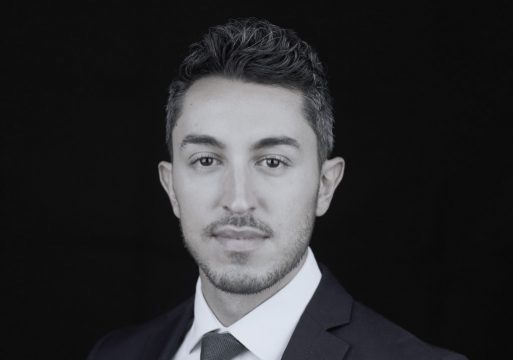Chris Symeon

Please note this page was last updated in 2019. Visit Chris’ LinkedIn profile for more information.
Chris is a Consultant Neuropsychiatrist at St George’s Hospital University NHS Foundation Trust. He leads an inpatient neurorehabilitation service at Queen Mary’s Hospital providing multidisciplinary interventions to patients with functional neurological disorder. Chris completed his training at St Bartholomew’s Medical School, later gaining an MSc in Neuroscience from King’s College London whilst completing his psychiatry specialist training at South London and Maudsley NHS Foundation Trust.
Digital Pioneer Fellowship project: Creating an app to increasing engagement with rehabilitation
Problem: Patients diagnosed with functional neurological disorder (FND) often wait up to a year for treatment. During this time, there is usually no other intervention.
Solution: The mainstay of treatment uses CBT (Cognitive behavioural therapy) techniques; however, these techniques could be incorporated and delivered using digital health technologies that patients could access remotely.
Scale: Only a handful of specialist units across the country provide treatment for this condition, severely limiting access to healthcare. Inpatient rehabilitation usually takes at least 12 weeks, with each admission costing around £50,000. FND patients occupy up to a third of neurology outpatient clinics and are often frequent attenders at hospitals and GP clinics.
Patients with FND have trouble understanding and accepting their diagnosis and struggle to ‘buy-in’ to the treatment when they are on the ward, adversely affecting outcomes.
Desired impact: The project aims to deliver:
- Education: in order for users to improve their understanding of their illness.
- CBT techniques: Promoting the monitoring of symptoms with guided interventions to reduce symptom severity.
- Support: Through signposting and peer-support.
With the objectives of:
- Increasing engagement with rehabilitation
- Reducing length of stays on the ward
- Improving functional outcomes (greater independence and lower care burden)
- Potentially avoiding admissions
- Preventing relapse
Progress to date: At the start of the Fellowship programme, funding that had been secured by Chris hadn’t all come through yet. There continued to be delays in receiving the promised funding, further delaying the ability to progress the app into trial phase. Chris took the decision to pump prime the development with investment from his own funds. As a result of being on the Fellowship he has now received most of the promised funds with the balance in the pipeline. This allowed him to hire a designer and complete a development sprint.
Chris is currently submitting an ethics application through St George’s University, to conduct a research study and to evaluate the licensing/business model for the app to ensure end user are only charged a minimal amount, if at all.
As of January 2020, Chris is ready to publish the app onto the app store and release to 30-40 service users for final evaluation. He is very happy with the end product and excited to be able to release @myFNDapp to users.
“I joined the Fellowship programme because at the time the project I was working on was ready to go, but I was not clear on how to go about delivering it.
The elements of the programme that created the most value for me were countless. My Action Learning Set group was amazing and our sessions were extremely helpful. I really enjoyed the ‘Design Thinking’ and ‘Agile’ sessions and the Business Case Development session was both useful and timely. Sessions with the mentors have helped me to think about the business side of things. I strongly believe that the Fellowship gave my project more clout which helped with funding. I have been approached about other digital projects, expanding my NHS non-clinical role. My capability to think strategically has improved. To assist me with driving change and support impact, I have succeeded in gaining the support of juniors, so that the capability extends beyond me.
I definitely plan to continue in the digital health space. I am looking at furthering my learning by way of other courses, fellowships or academies. I want to use my knowledge to increase efficiency, improve accessibility as well as to promote a positive culture towards innovation.” – Chris Symeon